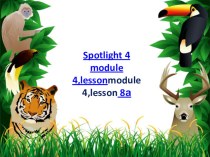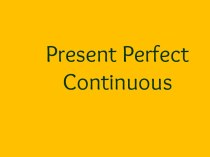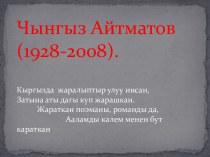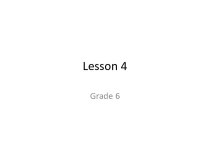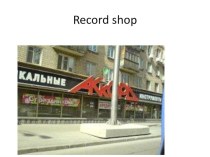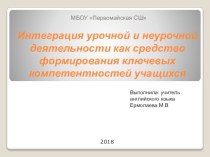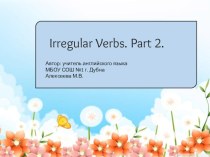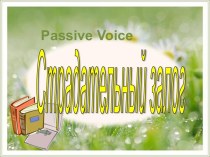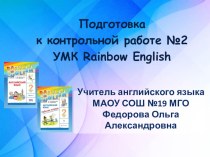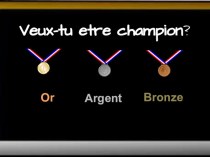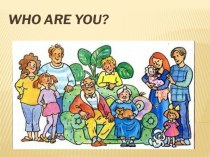- Главная
- Разное
- Бизнес и предпринимательство
- Образование
- Развлечения
- Государство
- Спорт
- Графика
- Культурология
- Еда и кулинария
- Лингвистика
- Религиоведение
- Черчение
- Физкультура
- ИЗО
- Психология
- Социология
- Английский язык
- Астрономия
- Алгебра
- Биология
- География
- Геометрия
- Детские презентации
- Информатика
- История
- Литература
- Маркетинг
- Математика
- Медицина
- Менеджмент
- Музыка
- МХК
- Немецкий язык
- ОБЖ
- Обществознание
- Окружающий мир
- Педагогика
- Русский язык
- Технология
- Физика
- Философия
- Химия
- Шаблоны, картинки для презентаций
- Экология
- Экономика
- Юриспруденция
Что такое findslide.org?
FindSlide.org - это сайт презентаций, докладов, шаблонов в формате PowerPoint.
Обратная связь
Email: Нажмите что бы посмотреть
Презентация на тему Использование герундия, инфинитива и основы инфинитива
Содержание
- 2. Использование глагола с окончанием ing, инфинитива и основы инфинитива
- 3. Глагол с окончанием ing используется:Как существительное в
- 4. 5. После глаголов spend, waste, lose (time,
- 5. Основа инфинитива используется после:Модальных глаголовSally can speak
- 6. Инфинитив с частицей to используется:Чтобы выразить цель:She
- 7. 6. С конструкцией it+be + adjective/noun:It was
- 8. 11. В выражениях for+noun/pronoun+to –inf:It was very
- 9. I am planning … (to visit/visiting) my
- 10. We expect … (to leave/leaving) tomorrow. Mary
- 11. 2. Выберите инфинитив с частицей to или без нее.We
- 12. Mother wants … (paint/to paint) the walls
- 13. Упражнение 2. Tick the correct item.1 Greg
- 14. keyExercise 2.1 walking; 2 to send, 3 to do; 4 playing; 5 reading; 6 to drink
- 15. Упражнение 1. Complete the sentences with the expression get
- 16. ОТВЕТЫExercise 1.To get a good job –
- 17. Скачать презентацию
- 18. Похожие презентации
Использование глагола с окончанием ing, инфинитива и основы инфинитива

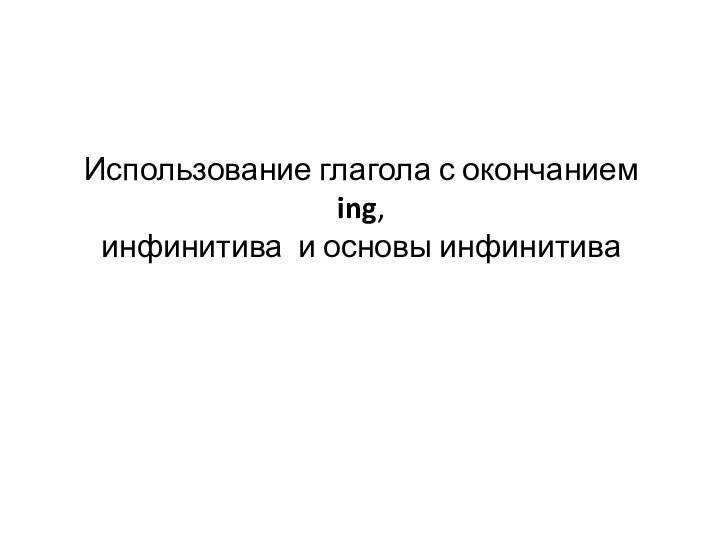
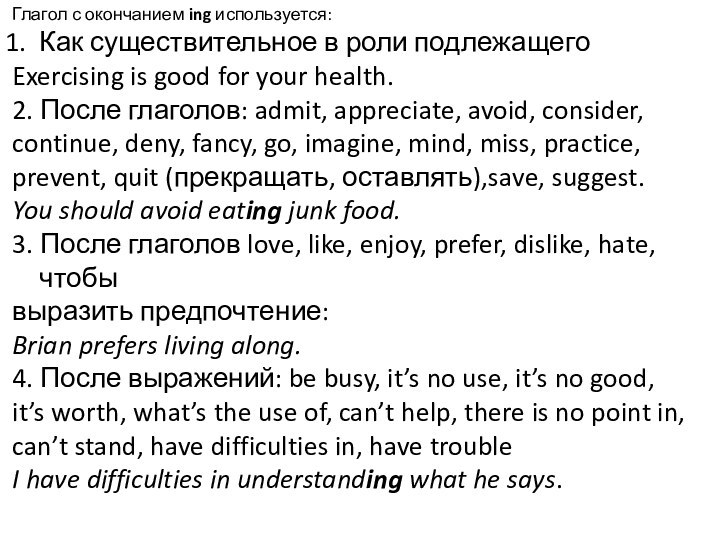
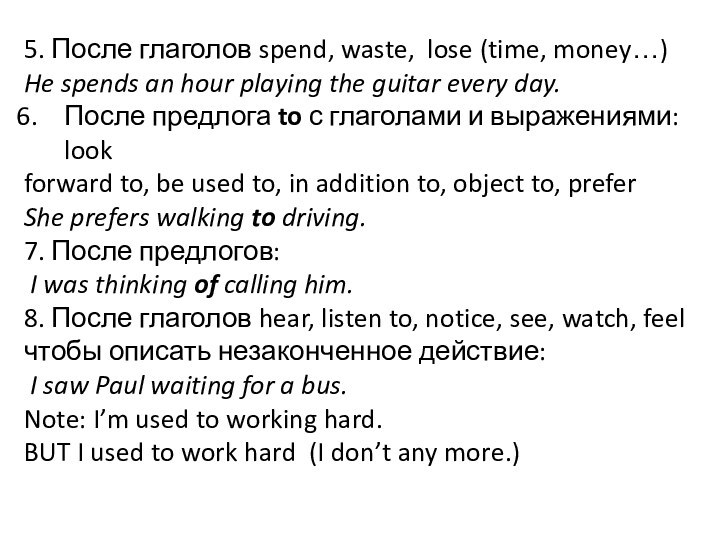

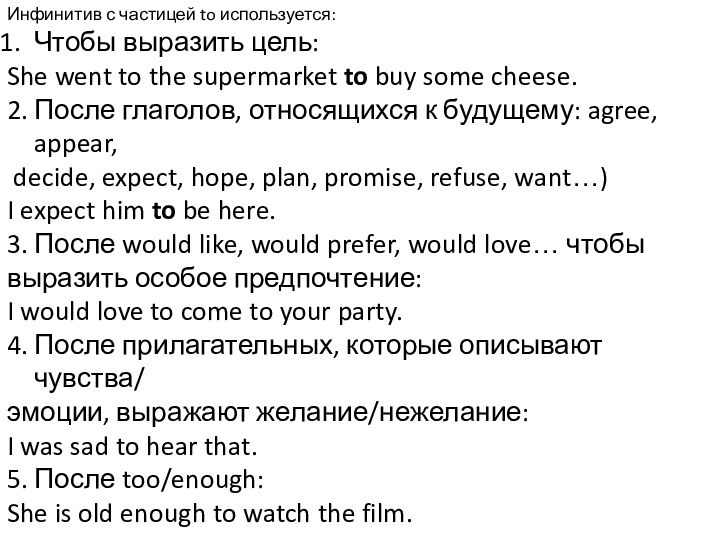
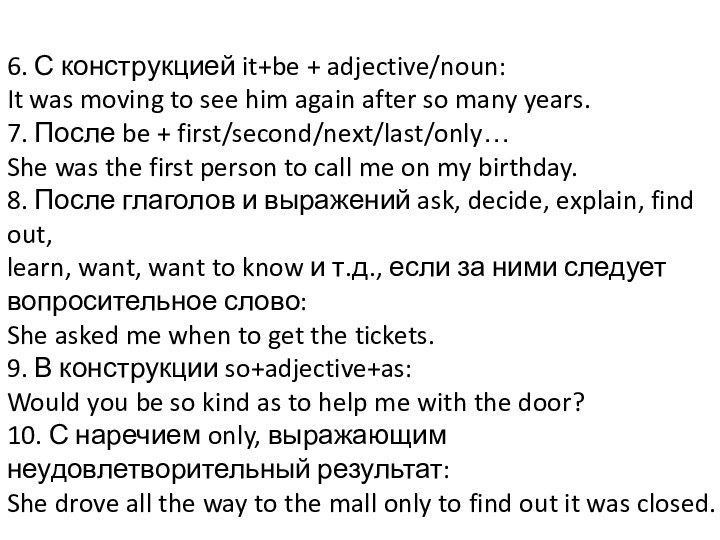


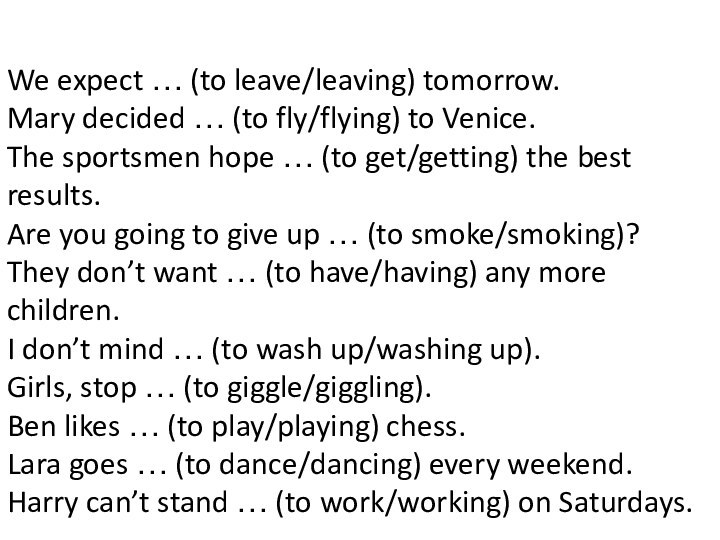
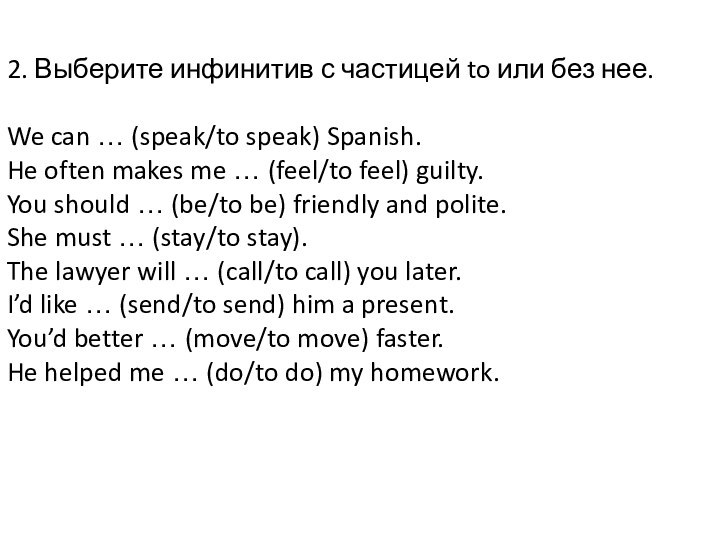
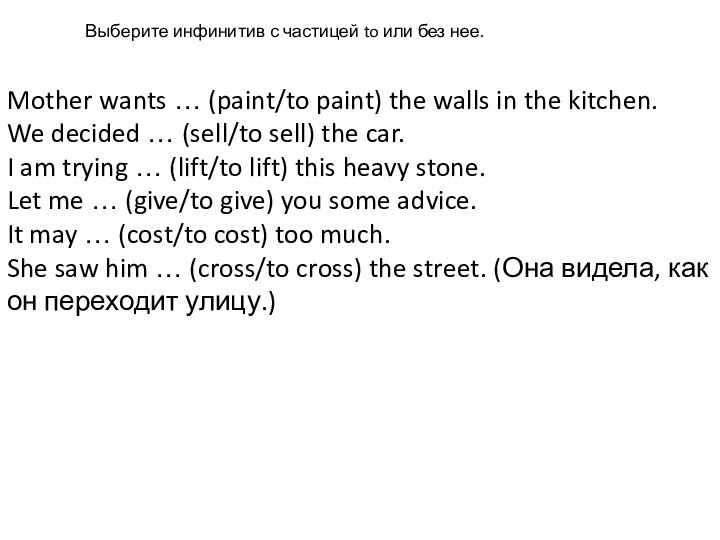


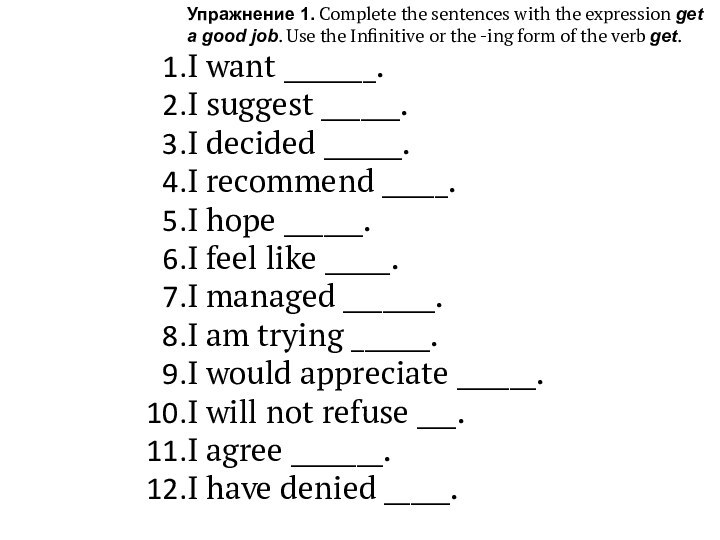

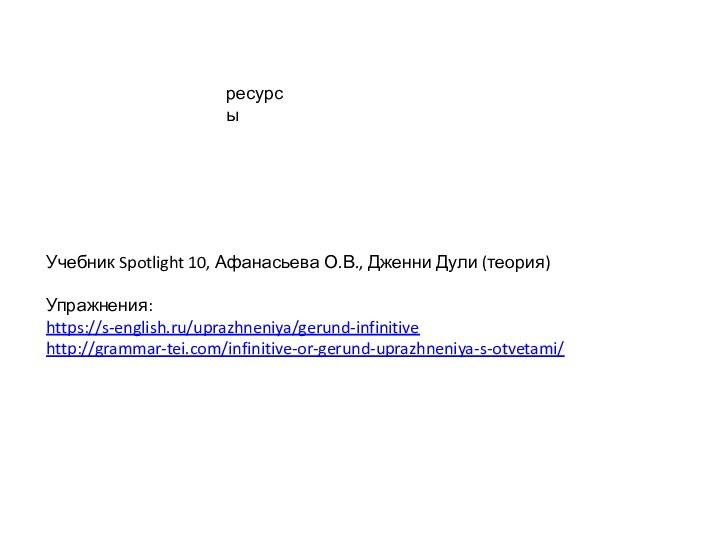
Слайд 3
Глагол с окончанием ing используется:
Как существительное в роли
подлежащего
Exercising is good for your health.
2. После глаголов: admit,
appreciate, avoid, consider, continue, deny, fancy, go, imagine, mind, miss, practice,
prevent, quit (прекращать, оставлять),save, suggest.
You should avoid eating junk food.
3. После глаголов love, like, enjoy, prefer, dislike, hate, чтобы
выразить предпочтение:
Brian prefers living along.
4. После выражений: be busy, it’s no use, it’s no good,
it’s worth, what’s the use of, can’t help, there is no point in,
can’t stand, have difficulties in, have trouble
I have difficulties in understanding what he says.
Слайд 4
5. После глаголов spend, waste, lose (time, money…)
He
spends an hour playing the guitar every day.
После предлога
to с глаголами и выражениями: look forward to, be used to, in addition to, object to, prefer
She prefers walking to driving.
7. После предлогов:
I was thinking of calling him.
8. После глаголов hear, listen to, notice, see, watch, feel
чтобы описать незаконченное действие:
I saw Paul waiting for a bus.
Note: I’m used to working hard.
BUT I used to work hard (I don’t any more.)
Слайд 5
Основа инфинитива используется после:
Модальных глаголов
Sally can speak English.
2.
После глаголов let, make, see, hear, feel
They let him
travel on his own.Had better, would rather
You had better put a jacket.
note: после help возможен и инфинитив и основа инфинитива
She helped me (to) carry the bag.
Слайд 6
Инфинитив с частицей to используется:
Чтобы выразить цель:
She went
to the supermarket to buy some cheese.
2. После глаголов,
относящихся к будущему: agree, appear, decide, expect, hope, plan, promise, refuse, want…)
I expect him to be here.
3. После would like, would prefer, would love… чтобы
выразить особое предпочтение:
I would love to come to your party.
4. После прилагательных, которые описывают чувства/
эмоции, выражают желание/нежелание:
I was sad to hear that.
5. После too/enough:
She is old enough to watch the film.
Слайд 7
6. С конструкцией it+be + adjective/noun:
It was moving
to see him again after so many years.
7. После
be + first/second/next/last/only…She was the first person to call me on my birthday.
8. После глаголов и выражений ask, decide, explain, find out,
learn, want, want to know и т.д., если за ними следует
вопросительное слово:
She asked me when to get the tickets.
9. В конструкции so+adjective+as:
Would you be so kind as to help me with the door?
10. С наречием only, выражающим
неудовлетворительный результат:
She drove all the way to the mall only to find out it was closed.
Слайд 8
11. В выражениях for+noun/pronoun+to –inf:
It was very unusual
for John to speak so rudely.
ПРИМЕЧАНИЕ:
Если два инфинитива связаны
между собой союзами и или или, то второй инфинитив используется без частицы to:
I would love to go to Paris and see the museums.
После слова dare в значении отважиться используется
либо инфинитив, либо основа инфинитива:
I don’t dare (to) tell him the truth.
Если слово dare выражает угрозу, предупреждение, гнев,
то за ним идет инфинитив без частицы to:
Don’t you dare talk to me like that.
Слайд 9 I am planning … (to visit/visiting) my granny
next week.
He suggested … (to buy/buying) some food.
Does
Sally enjoy … (to go/going) to the gym? I can’t stand (to play/playing) board games.
They want (to buy/buying) a new house.
She practices (to speak/speaking) English.
I decided (to borrow/borrowing) some money.
He agreed (to help/helping) me.
I think she didn’t mean … (to hurt/hurting) you.
Open the brackets
Слайд 10
We expect … (to leave/leaving) tomorrow.
Mary decided
… (to fly/flying) to Venice.
The sportsmen hope …
(to get/getting) the best results. Are you going to give up … (to smoke/smoking)?
They don’t want … (to have/having) any more children.
I don’t mind … (to wash up/washing up).
Girls, stop … (to giggle/giggling).
Ben likes … (to play/playing) chess.
Lara goes … (to dance/dancing) every weekend.
Harry can’t stand … (to work/working) on Saturdays.
Слайд 11
2. Выберите инфинитив с частицей to или без нее.
We can
… (speak/to speak) Spanish.
He often makes me …
(feel/to feel) guilty. You should … (be/to be) friendly and polite.
She must … (stay/to stay).
The lawyer will … (call/to call) you later.
I’d like … (send/to send) him a present.
You’d better … (move/to move) faster.
He helped me … (do/to do) my homework.
Слайд 12 Mother wants … (paint/to paint) the walls in
the kitchen.
We decided … (sell/to sell) the car.
I am
trying … (lift/to lift) this heavy stone.Let me … (give/to give) you some advice.
It may … (cost/to cost) too much.
She saw him … (cross/to cross) the street. (Она видела, как он переходит улицу.)
Выберите инфинитив с частицей to или без нее.
Слайд 13
Упражнение 2. Tick the correct item.
1 Greg enjoys
… in the rain.
□ walk □ walking □ to
walkI’d like … Molly an e-mail now.
□ send □sending □ to send
What does Steve want ...?
□ do □ doing □ to do
The cold coach watched his team … football.
□ play □ playing □ to play
I prefer … detective stories.
□ read □ reading □ to read
Would you like something …?
□ drink □ drinking □ to drink
Слайд 15 Упражнение 1. Complete the sentences with the expression get a
good job. Use the Infinitive or the -ing form
of the verb get.I want _______.
I suggest ______.
I decided ______.
I recommend _____.
I hope ______.
I feel like _____.
I managed _______.
I am trying ______.
I would appreciate ______.
I will not refuse ___.
I agree _______.
I have denied _____.


